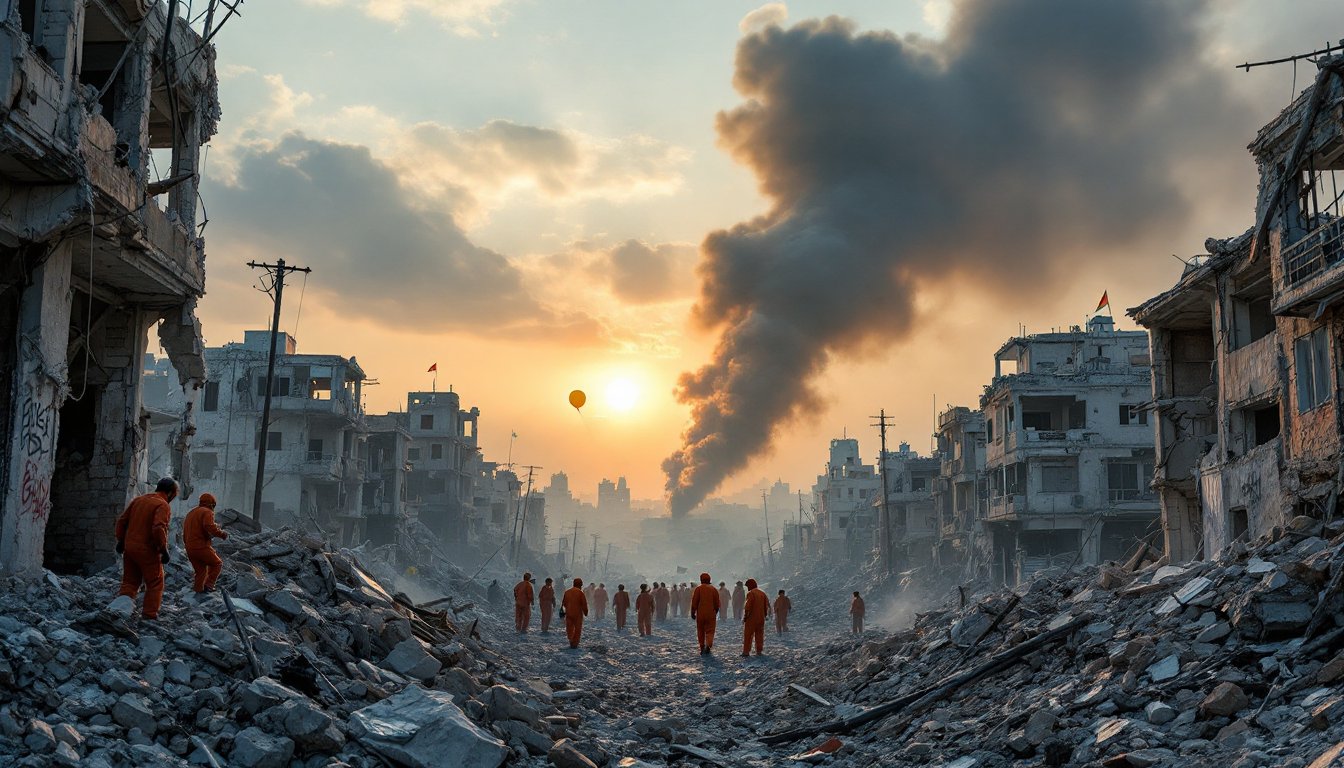Table of Contents
The geopolitical landscape of the Middle East remains fraught with tension as recent developments have sparked further conflict. Israeli airstrikes in Gaza have led to significant casualties, even amidst a ceasefire, while Iran pursues its nuclear ambitions, raising international concerns. This article delves into these escalating tensions, examining the implications of military actions and diplomatic negotiations.
Israeli airstrikes and the Gaza ceasefire
Despite the implementation of a U.S.-backed ceasefire in Gaza last month, Israeli forces conducted airstrikes that tragically resulted in the deaths of at least 32 individuals. This incident marks a grim addition to the increasing number of Palestinian casualties since the ceasefire was enacted. The continued violence underscores the fragile nature of peace in the region and raises questions regarding the effectiveness of international mediation efforts.
Casualties and the impact on civilians
The recent airstrikes have not only claimed lives but have also inflicted severe emotional and infrastructural damage on the already beleaguered population of Gaza. Families are left mourning their losses, while the destruction of homes and essential services exacerbates the humanitarian crisis. The ongoing conflict reveals a dire need for sustainable solutions to ensure the safety and well-being of civilians caught in the crossfire.
Iran’s nuclear aspirations and international relations
Simultaneously, Iran is making strides in its nuclear program, with reports indicating that the nation is developing technologies that could potentially lead to the creation of a nuclear weapon. A delegation affiliated with the Iranian Defense Ministry reportedly visited Russia in late 2025, seeking advanced laser technology to aid in validating nuclear designs without the need for explosive tests. This move has raised alarms among international observers, particularly in light of the recent Israel-Iran conflict.
Nuclear negotiations and the role of the United States
Iranian officials have expressed a willingness to resume nuclear negotiations with the United States, yet they remain firm on their right to enrich uranium for peaceful purposes. The Supreme Leader’s advisor emphasized the principle of mutual respect in future discussions, while reiterating that Iran will not concede on its enrichment rights. This impasse between Iran’s ambitions and U.S. demands for zero enrichment highlights the complexities of diplomatic engagement in the region.
Hezbollah’s activities and regional security
In southern Lebanon, the Israel Defense Forces (IDF) have targeted Hezbollah rocket storage facilities, resulting in the death of a Hezbollah fighter. This action comes amid reports that Hezbollah is attempting to strengthen its military presence in the region. The IDF’s proactive measures reflect ongoing concerns about Hezbollah’s potential to launch attacks against Israel, especially as the group seeks to replenish its weapon stockpiles.
Smuggling operations and military preparations
There are indications that Hezbollah is actively smuggling weapons from Syria into southern Lebanon, preparing for possible confrontations with Israeli forces. Recent IDF strikes suggest that smuggling routes remain operational, facilitating the transfer of various munitions. The military dynamics in this region continue to evolve, as both Israel and Hezbollah position themselves for future engagements.
Internal strife within Iran’s regime
The aftermath of the Israel-Iran War has reportedly led to increased paranoia and infighting within the Iranian government. Officials have expressed concerns over potential Israeli infiltration, resulting in a series of arrests for espionage. This internal turmoil may hinder the regime’s capacity to make cohesive decisions, raising questions about its stability and effectiveness in dealing with external threats.
Implications for decision-making
The climate of suspicion within Iran’s leadership could complicate its foreign policy and military strategies. As trust diminishes among officials, the regime may struggle to respond effectively to ongoing challenges, including international sanctions and military confrontations. This situation underscores the fragility of Iran’s political landscape in the context of regional instability.


